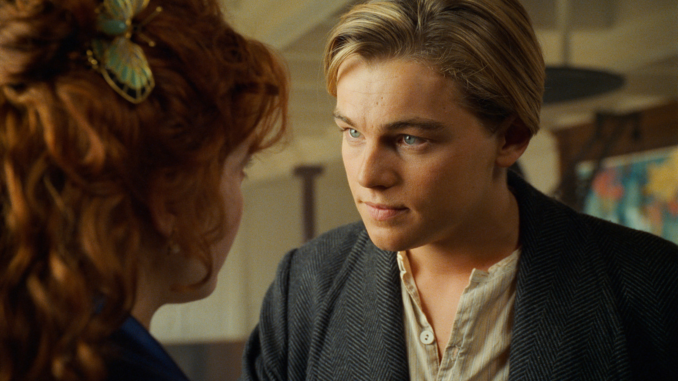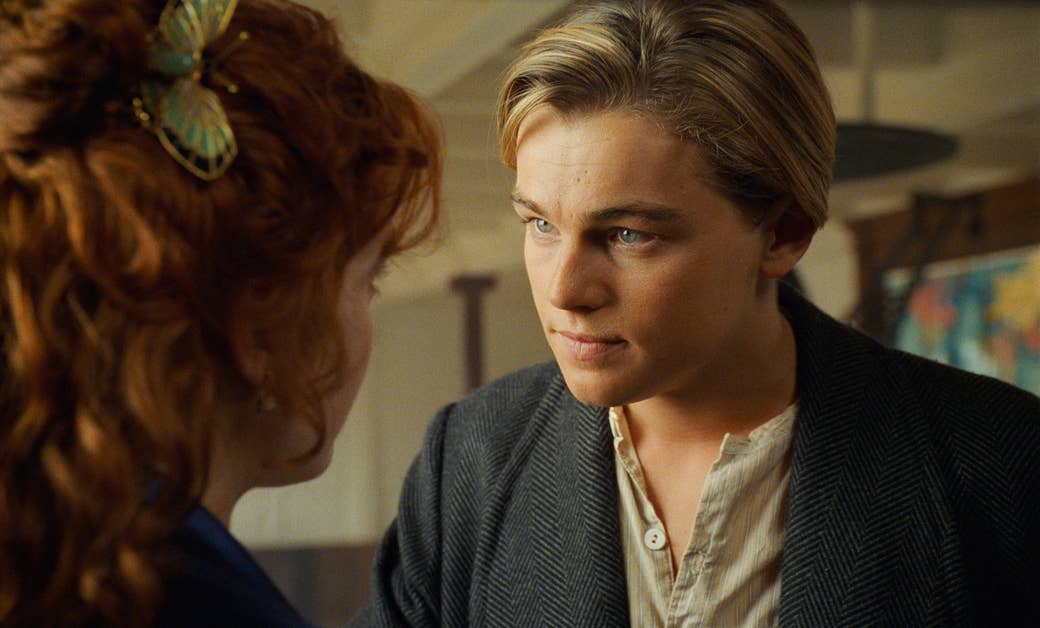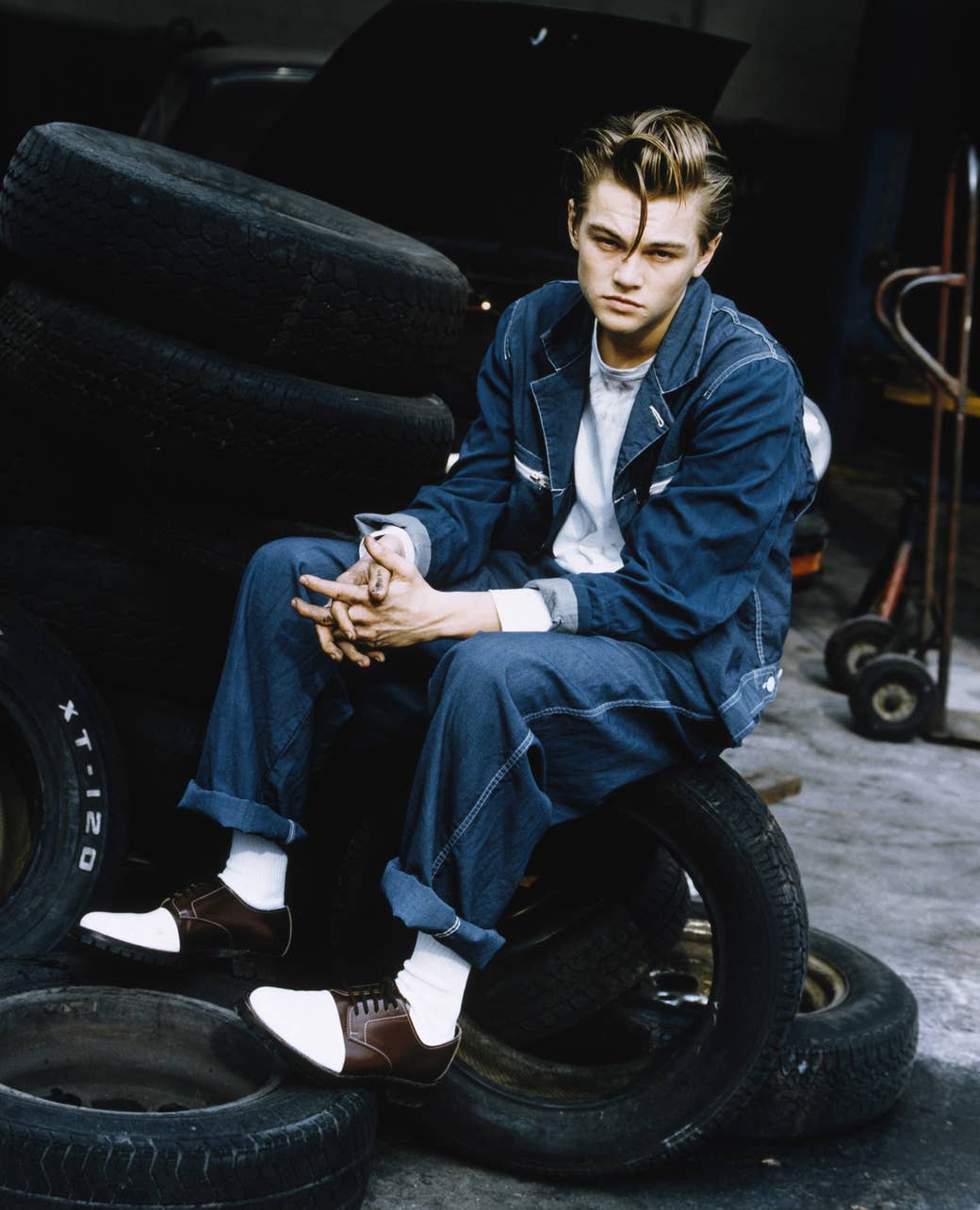
How Jack From “Titanic” Launched A Thousand Lesbian Awakenings
Titanic, which turns 20 today, was in frequent rotation in our household growing up. The two-VHS set conveyed just what we were getting into: This movie — about two star-crossed lovers having an affair on the maiden journey of a famously doomed ship — was so big, so grand, so epic, it couldn’t be contained on a single tape. Now, whenever I watch it, which is still embarrassingly often, I feel an urge to get up and swap part two of the video set into an imaginary VHS player after the captain says “I believe you may get your headlines, Mr. Ismay,” which is right when tape #1 would end.
Titanic satisfied the entertainment requirements of both me and my four siblings, which was rare since we were constantly battling factions with shifting allegiances. For the boys, Titanic offered guns and bloodshed; and for the girls, of course, there was a love story.

In an age of bad dial-up internet, before I found online message boards devoted to my famous teenage-era loves, I didn’t realize that I was just one of millions of girls around the world who’d fallen prey to Leomania — I thought Leo was uniquely special to me, and to my sister, and to a handful of my friends whose parents hadn’t deemed Titanic too violent or sexually inappropriate for preteens. I loved the same things about Jack (and, by proxy, Leo) that everybody else did: his sweet vulnerability, his artsy way of looking at the world, his heart-stopping pretty-boy handsomeness.
It was only much later, after I came out as gay toward the tail end of college, that I began to notice that I was not the only lesbian who’d once had a serious thing for Jack Dawson. At queer parties, Leo’s name would inevitably come up during conversations about the heartthrobs we’d lusted after as sexually confused tweens, alongside Fresh Prince–era Will Smith, Cry Baby–era Johnny Depp, and Devon Sawa, the human version of the titular ghost in Casper who dances with Christina Ricci for five seconds. They were all permanently imprinted on our latently lesbian hearts – because they all kinda looked like lesbians.

Leo, baby-faced at 22 years old when he shot Titanic, shares a certain vibe with the type of women and nonbinary people I tend to date now, from his masculine-leaning androgyny to his swoop of ‘90s-era boy hair. Also, those costumes: the flannel! The corduroy! The suspenders!!! So gay it hurts. He was the soft butch of my dreams.
(I know the phrase “looks like a lesbian” pisses some people off — I can hear the indignant comments now: What, exactly, is a lesbian supposed to look like? — and like, sure. As a more feminine lesbian, I get it; we don’t all look the same. But this is a joke with roots in a verified cultural norm. And the world is burning, people! Let me have this.)
Some queer women know in their bones they like other girls at very young ages; others, like me, grew up happily heterosexual, until puberty had its way with the boys we once loved. Looking back, I can trace hints of my gayness through my teen years and early adulthood, but I never developed crushes on any of my straight-girl friends. For the most part, I was perfectly happy dating guys — or, I should say, as perfectly happy as is possible when dating clueless, emotionally underdeveloped teen boys.

As a teenager who doused her eyes in black shadow and wore two studded belts on top of each other, I went crazy for the skinny, effeminate kids who ran in my unruly social circles — boys in tight jeans with hair as long, gravity-defying, and dyed to oblivion as mine, who could wear eyeliner better than I could. They were broodingly anemic, androgynous alternatives to the beefier jock-bro types I couldn’t stand.
But then, even the most androgynous of teenagers grew up. Their soft baby faces gave way to strong jaws spiked with stubble; their slight bodies hardened and became alien to me. By the time these boys became young men, my attraction to them went out like a light. And though it may have seemed that way to me at the time, I don’t think my switch boiled down to a gender-essentialist disgust with the “male” body — I wasn’t grossed out by the guys I dated, but I did start getting bored, and it did start feeling wrong, for a whole host of complicated reasons to do with gender presentation and identity and the complicated cocktail of human sexuality. Point is: I was, in fact, gay.
